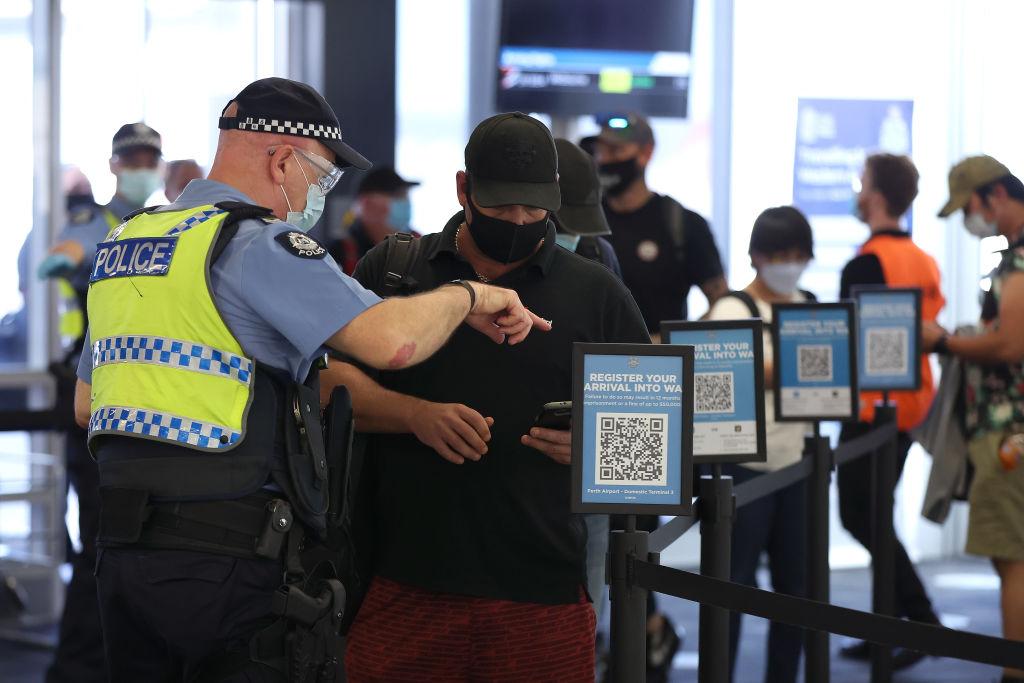Major airline Qantas has voiced concerns regarding the Australia government’s response to the latter stages of the pandemic, deeming it “disproportionate” to the risk as public sentiment shifted, variants weakened, and vaccination rates increased.
COVID-19 INQUIRY: Late Pandemic Response ‘Disproportionate to the Risk’: Qantas
More than 2,000 submissions have been received by the government to the COVID-19 inquiry.

Arriving passengers scan the arrival registration QR codes at the Qantas Domestic terminal on February 05, 2022 in Perth, Australia. Photo by Paul Kane/Getty Images
Monica O’Shea is a reporter based in Australia. She previously worked as a reporter for Motley Fool Australia, Daily Mail Australia, and Fairfax Regional Media. She can be reached at monica.o'[email protected]
Author’s Selected Articles




